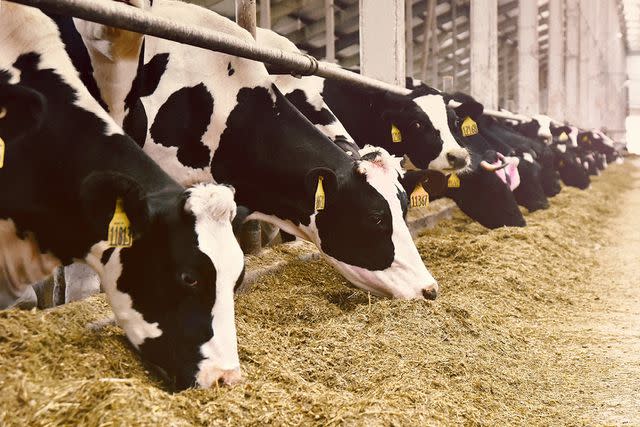Nevada Resident Infected with New Strain of Bird Flu: 'We’re Gonna Have Another Influenza Pandemic'
“It could mark a new chapter in the outbreak or that bird flu may become endemic in the U.S.,” suggested Andrea Garcia of the American Medical Association

Peter Garrard Beck / Getty
A stock image of a person in a hazmat suit holding a chickenThe Centers for Disease Control and Prevention (CDC) has confirmed that a Nevada resident has been infected with a new strain of the bird flu.
On Feb. 10, the Central Nevada Health District (CNHD) reported a case of the bird flu (highly pathogenic avian influenza, HPAI) in a worker who had exposure to infected dairy cattle at a farm in Churchill County.
Health officials said the dairy worker’s illness was mild, they were not hospitalized and have since recovered.
The patient reportedly had the D1.1 strain of bird flu, differing from the B3.13, which is the strain of the virus that has resulted in the majority of human infections in the United States. This new strain was first confirmed in Nevada cattle on Jan. 31 after the virus was detected in milk collected for monitoring purposes in December.
The latest development raises concerns about whether dairy cows may be more susceptible to the bird flu, which would increase the risk of cow-to-human transmission.
“Some experts do fear that it could mark a new chapter in the outbreak or that bird flu may become endemic in the U.S.,” Andrea Garcia — vice president of science, medicine and public health at the American Medical Association — said during a news brief on Feb. 10. “This is something we are continuing to very closely follow.”
Related: What to Know About the Bird Flu amid the Current Outbreak

Never miss a story — sign up for PEOPLE's free daily newsletter to stay up-to-date on the best of what PEOPLE has to offer, from celebrity news to compelling human interest stories.
“That’s a big deal,” Michael Osterholm — infectious disease expert and director of the Center for Infectious Disease Research and Policy at the University of Minnesota — told NBC of the virus being found in more cows.
“We’re gonna have another influenza pandemic, and when it happens, we shouldn’t be surprised,” he added.
However, the CDC and CNHD said the public health risk for the general public remains low, while noting that “people who work with birds, poultry or cows, or have recreational exposure to them, are at higher risk.”
Those at greater risk are encouraged to avoid touching sick or dead animals, and ensure that they are not eating uncooked or undercooked food. Cooking poultry and eggs to an internal temperature of 165˚F kills bacteria and viruses, according to the CDC.
Last Month, health officials announced the first death in the United States linked to the bird flu. The Louisiana Department of Health confirmed on Jan. 6 that a 65-year-old man died from the virus after exposure to “a combination of a non-commercial backyard flock and wild birds.”
The World Health Organization previously called the current outbreak a “significant public health concern.” However, the agency does not currently list the bird flu outbreak as a global health emergency.
Read the original article on People


